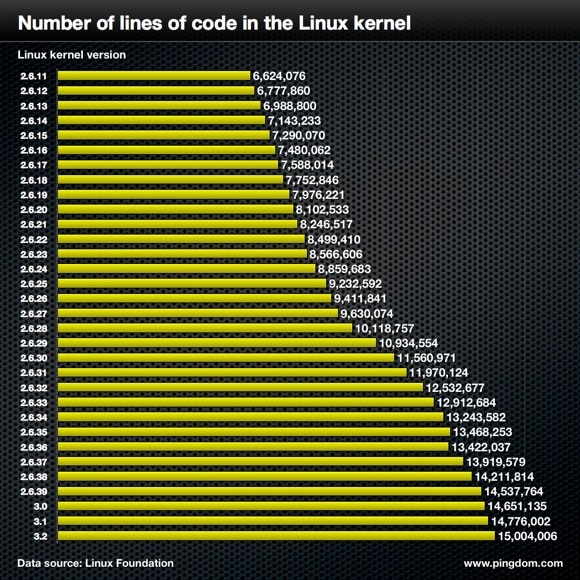
- #Linux kernel versions install#
- #Linux kernel versions update#
- #Linux kernel versions iso#
- #Linux kernel versions series#
The distribution is what you are thinking of as "the OS" and the distros vary quite a bit.

See in Linux Land, the OS is the kernel and it's toys.
#Linux kernel versions install#
Not all distros install the LSB packages, but those that do, like Mint, will have a file named /etc/os-release and one named /etc/lsb-release. Redhat, Fedora, CentOS, SuSE, openSuSE all have a file named like that - /etc/redhat-release and /etc/centos-release. rw- 1 root root 7712560 /boot/vmlinuz-4.13.0-45-genericĪnother place to look is in files named /etc/*-release, if such exist. For example, on my Linux Mint 19 system, the kernels are in /boot/: ~ $ ls -ltr /boot/vmlinuz* If you really are only interested in the version of the kernel and you really don't have clues about which distro you're looking at, I would start by looking for kernel itself and hope the distro named it with it's version. Each distribution identifies itself to the world in it's own way, though there are some conventions. Linux Mint 21.2 is based on Ubuntu 22.04 LTS.There's no one file you could read that would tell you this on every Linux system you might look at.
#Linux kernel versions iso#
In related news, the Linux Mint devs announced the other day that they plan to release an EDGE ISO image for Linux Mint 21.2 “Victoria” that will be powered by Linux kernel 6.2. However, it was superseded by Linux kernel 5.19 from Ubuntu 22.10 (Kinetic Kudu) when Ubuntu 22.04.2 LTS was released.Īpart from shipping with Linux kernel 6.2 from Ubuntu 23.04, the Ubuntu 22.04.3 LTS point release will also bring all the updated packages that have been released since Ubuntu 22.04.2 LTS, as well as a newer Mesa graphics stack for gamers, namely Mesa 23.0.4. Each Symantec Endpoint Protection version also has a specific range of Linux kernel versions it supports. Ubuntu 22.04 LTS was released on April 21st, 2022, and it shipped with the long-term supported Linux 5.15 LTS kernel series, which will receive security updates until October 2026. Linux kernel 6.2 introduced new features like protective load balancing (PLB) for the IPv6 stack, a new FineIBT control-flow integrity mechanism for x86, support for the Intel “asynchronous exit notification” mechanism, a new tool called RV (Runtime Verification), and more Rust infrastructure.
#Linux kernel versions series#
Linux 6.2 is shipped as an HWE (Hardware Enablement) kernel to make installation smoother on newer hardware for those who want to deploy the Ubuntu 22.04 LTS (Jammy Jellyfish) operating system series on a new computer, but it also comes as good news for existing Ubuntu 22.04 LTS users as it brings better hardware support. This article will provide an overview of the most important changes to the respective versions of the core.
#Linux kernel versions update#
So, if you’re running Jammy Jellyfish and you update your installation by running the sudo apt update & sudo apt full-upgrade command in the Terminal app, you’ll receive the Linux 6.2 kernel. The Linux core is in a constant state of development and expansion. On August 10th, 2023, Ubuntu 22.04.3 LTS will arrive (if everything goes according to plan) as the third point release in the Jammy Jellyfish series and it will ship with a newer kernel, namely Linux 6.2, from the Ubuntu 23.04 (Lunar Lobster) interim release.īut it looks like Canonical has already promoted the Linux 6.2 HWE kernel to existing Ubuntu 22.04.2 LTS users.

A week before the planned Ubuntu 22.04.3 LTS point release for the long-term supported Ubuntu 22.04 LTS (Jammy Jellyfish) series, Canonical updated the kernel packages from Linux 5.19 to Linux 6.2.


 0 kommentar(er)
0 kommentar(er)
